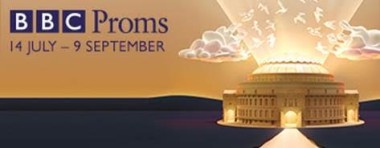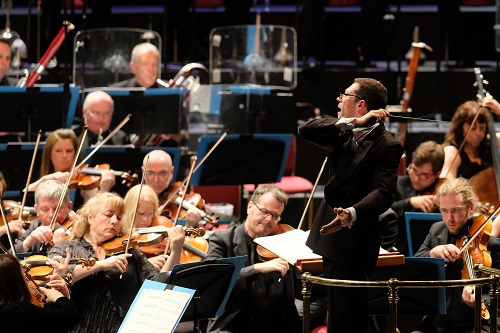
 United Kingdom 2017 BBC PROMS 14 – Vaughan Williams and Holst: CBSO Youth Chorus, BBC Scottish Symphony Orchestra / John Wilson (conductor), Royal Albert Hall, London, 25.7.2017. (AS)
United Kingdom 2017 BBC PROMS 14 – Vaughan Williams and Holst: CBSO Youth Chorus, BBC Scottish Symphony Orchestra / John Wilson (conductor), Royal Albert Hall, London, 25.7.2017. (AS)

Vaughan Williams – Symphony No.9 in E minor
Holst – The Planets, Op.32
Though Vaughan Williams’s Ninth Symphony is rarely performed live, this was the second time in 2017 that London audiences have been able to hear the work. In January Vladimir Jurowski conducted the London Philharmonic Orchestra in a most insightful interpretation at the Royal Festival Hall. Lucky are those of us who have experienced both occasions, since John Wilson’s account of the work was on the same exalted level.
Whatever Vaughan Williams might have said or not said about the work it seems clear to me that its underlying theme is death, a subject that would naturally be avoided openly by the 85-year-old atheist composer as he peered into the approaching abyss.
As we know, the symphony inspired a somewhat baffled response when it was first heard, and indeed for many years later, and I suspect this was partly due to a less than total comprehension on the part of its conductors.
John Wilson presented the work with ideal clarity, and his precise direction and rather clickety beat ensured an alert, balanced response from his players. He brought out the emotional agony – such was the quality that came across under his leadership – of the first movement, and its rhythmic turbulence, in a very stark fashion. There was a dirge-like quality in the second slow movement, with the expression of grim defiance counterbalanced by almost detached, elegiac expression in the beautiful melody that emerges in the middle of the movement. The bizarre textures of the Scherzo, with the trio of saxophones seemingly laughing ironically at the hopeless human situation, were vividly brought out, and in the finale an intense but unavailing struggle against an inevitable fate was seemingly conveyed.
In an interview reproduced in the concert programme John Wilson remarked that he had “performed The Planets quite a lot and I never do it the same way twice. Before the concert I don’t know how I am going to do it.” This might explain a certain lack of virility in his performance on this occasion. Maybe the work has lost its freshness for him, or maybe it was just how he felt on the night. In any event, “Mars” seemed distinctly ponderous and lacking in energy, “Venus” was a bit tame and not very mysterious, “Mercury” just a bit subdued. A sudden hitch of tempo near the beginning of “Jupiter” brought a bit more energy to proceedings, but the big tune seemed a trifle too pedantic. There was a lack of menace in a rather plodding “Saturn”, which became slower and slower as the piece progressed, and “Uranus” lacked sharpness of attack, though there was an extraordinarily loud, brief interjection from the organ that we don’t usually hear emerging from the general texture as it did on this occasion. A lack of simple propulsion also inhabited a “Neptune” which rather drifted along, until the entry of the female chorus, that is. Here the sound of the 60 or so young girls of the CBSO Youth Chorus was beautifully ethereal, and the fading out of the voices at the end was managed better than I have ever heard before. But this was not enough to redeem a performance which, though certainly not bad, and certainly well played by the BBC SSO, was just lacking slightly in presence.
Alan Sanders
I agree, VW’s 9th is about death and I’m surprised by how little this is mentioned. Aside from the symbolic value of a ninth symphony, this is clearly a swansong, looking both backwards to earlier works and forwards to death.
It was heartening to hear the Proms audience respond so well, to what is increasingly being regarded as a late masterpiece.